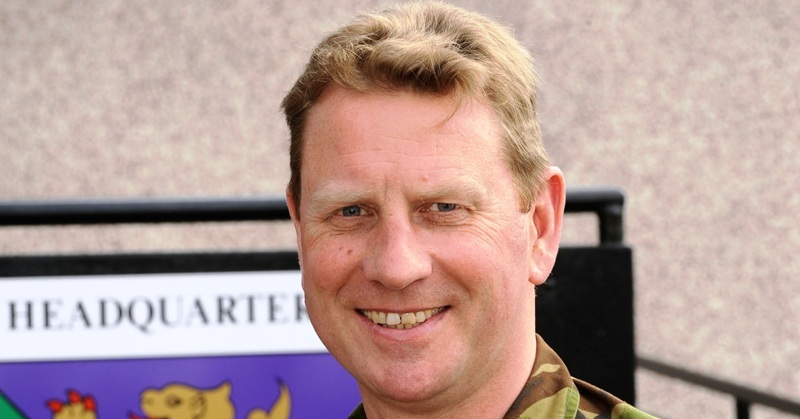Thie historical golden thread linking Scotland’s regiments remains critical to the army but the country must take a “mature” view of any future changes to its structure, the new head of 51 (Scottish) Brigade has said.
The amalgamation took place amid a storm of controversy and last year there were fears that TA soldiers could be forced to wear a purple hackle to replace their individual ones, such as the famous red hackle of The Black Watch.
The army denied these claims but Brig Lowder said he hopes the Scottish public understand that changes are inevitable in the army.
He was commanding officer of the Royal Scots (The Royal Regiment) when the amalgamation took place in 1986 and he said the decision had unanimous support within the army itself.
He said, “It would be good if Scotland takes a mature and grown-up view (of any changes) given the difficult national issues-not just affecting defence, but all areas
“One large regiment was the way to go. Given the cards we were dealt, a stronger, larger regiment with stronger battalions was the only sensible decision and I think they have done a great job.”
Brig Lowder added that it had made a stronger, shared identity for the Scottish infantry that is now forging its own history but he maintained regimental histories should not be brushed aside.
He said, “The golden thread is critical to all of that and it is important to me personally.
“There are still some doubters but I think it was the right way to go forward.”StrongHe added that reserve forces like the TA are more vital to the armed forces than ever and that, despite the suspension of some training last year, recruitment is still going strong.
Brig Lowder said, “We are open for business. In the TA we can always do with more good quality people.”
Brig Lowder was born in Edinburgh in 1963 and attended George Heriot’s School.
He was commissioned into the Royal Scots in 1981 and studied Scots law at Aberdeen University.
He served in Belfast, Germany and Canada and was awarded a Brigade Commander’s Commendation in Operation Desert Storm.
Following the September 11 attacks on New York, he was posted to Washington as one of two liaison officers for global terrorism.
Brig Lowder assumed command of the 1st Battalion The Royal Scots in Iraq in February 2004.
Promoted to colonel in 2005, he was made director of strategic plans and policy for the combined forces command in Afghanistan.
Brigadier George Lowder became commanding officer of the brigade and the second most senior soldier in Scotland last month when he succeeded Brigadier David Allfrey.
In an exclusive interview with The Courier, Brig Lowder also said that the Officer Training Corps and Territorial Army are both “open for business,” despite training being temporarily suspended last year because of budget pressures.
His appointment as commanding officer of 51 (Scottish) Brigade, which has administrative responsibility for all Scottish TA units, comes at a time when the conflict in Afghanistan and the UK’s dire economy has put more pressure on the UK’s reserve forces than ever before.
Brig Lowder said his first priority is to ensure the TA in Scotland continues to provide its “fair share” of soldiers for the UK.
He said, “Traditionally, we have always punched above our weight but we can’t afford to take our foot off the pedal.”
Brig Lowder said that the relationship between the Scottish public and the armed forces had remained strong as shown in the Armed Forces Day celebrations despite the controversial campaigns in Iraq and Afghanistan.
He said, “I think the Scottish people were among the first to realise that soldiers are not politicians, that the army has to secure its strategic objectives.Respect”But we’ve got to keep working at it. Respect has to be earned it’s not a right.”
The army, navy and air force are also bracing themselves for cuts as the coalition government continues to reduce public spending.
The results of a strategic defence review will be made public on October 20.
It comes just four years after Scotland’s six historic infantry regiments were merged to form the Royal Regiment of Scotland, an issue that many veterans are still bitter about.
